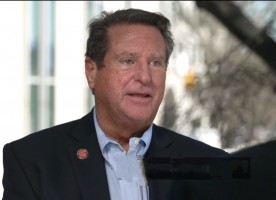Making the correct choice regarding your child's education is essential, as it can significantly impact their future. Families often prioritize education by opting for their neighborhood public schools. Around 90% of families in the state make that choice. However, parents have options.
The term “school choice” can refer to programs and policies that let families access schools beyond their traditional neighborhood schools. School choice varies widely from community to community. School choice grants parents the freedom to choose, regardless of public or private status. Parents should actively participate and make informed decisions to ensure their child is educated to their full potential.
- Open enrollment. Open enrollment/inter/intra-district choice lets families choose traditional public schools outside their ZIP Code. Intra-district choice means multiple public schools in their district. Inter-district choice means any public school in their state/region. Public schools prioritize students within district lines. Enrollment preference is given first to students within assigned district lines.
- Magnet Schools. Magnet schools are public schools that offer unique curricula and programs to attract students with shared interests. Enrollment requires an application and acceptance.
- Career Academies. A career academy is a school that offers a college-preparatory curriculum with a focus on a career-oriented theme. It is distinguished by three key elements: various subjects, a college-preparatory curriculum, and a career-oriented theme. Small learning communities integrate technical skills with academics for high school graduation and college entrance. The curriculum links with developments in the private sector and offers work-based learning opportunities.
- International Baccalaureate Program. The International Baccalaureate (IB) Program is a rigorous college preparatory curriculum emphasizing classical liberal arts and sciences. Initially established in the 1960s as a universal university entrance credential to benefit a group of international schools, the program is now offered in over 5,400 schools globally.
- Charter Schools. Charter schools are publicly funded and operated by independent organizations exempt from some regulations in exchange for accountability. When charters have more applicants than open seats, they must hold a lottery to accept students.
- Home School. In Tennessee, families have several educational opportunities for their children in grades K-12, including homeschooling. Tennessee state law identifies two ways parents or legal guardians may home-school their children: independent home school or enrollment in an approved church-related non-public school. Additionally, parents can enroll their child in an approved accredited online school, which offers an alternative to traditional brick-and-mortar schools by allowing the student to attend their online school from home.
- Hybrid Model. Hybrid homeschooling offers the benefits of both homeschooling and the traditional classroom setting. It's a powerful approach that empowers students to achieve academic success on their own terms.
- School Vouchers. Vouchers let parents use public funds to enroll their children in private schools. Voucher programs rarely cover full tuition. Participating families receive these funds as vouchers for partial or complete tuition fees, including religious and non-religious options.
- Traditional voucher programs. States establish private school requirements to accept vouchers and compensate education funds for private school tuition.
- Education Savings Accounts (ESAs). Publicly funded savings accounts for parents with multiple uses, including paying for school tuition, tutoring, online education programs, textbooks, and more. They could also allow parents to save for college. These are targeted (aimed only at students meeting specific qualifications
- Tax credit scholarships. States offer tax credits to businesses or individuals who donate to scholarship organizations. Eligible students can use funds for tuition at private schools.
- Universal vouchers. These universal school vouchers are available to all students in the state, including those who already attend private schools and those that had not previously attended public schools. This has the effect of adding new costs to the state education budget.
- Online Learning. Online learning is education conducted over the Internet, allowing students to work with their curriculum and teachers online. Online schools can be used in a public, private, or homeschool setting.
- Microschooling. Microschooling is a small, customized education system tailored to individual students’ needs. It became popular after COVID-19 and can be part of public, private, or charter schools or operate independently.
"School choice" enables families to access schools beyond traditional neighborhood schools. Lack of transportation hinders choice. The Sycamore Institute Dashboard shows that 42% of rural districts in Tennessee have no private schools, and 84% have three or fewer. In order to participate, students are required to travel long distances, or they may have no access at all. Universal school vouchers' economic impact depends on the program's design, implementation, and broader socioeconomic context.
Private schools have the right to choose students, while public schools don't. Not all private schools accept vouchers or serve disabled students, and some discriminate based on disability, religion, or language. Universal vouchers give schools the power to choose, not the students.
Providing adequate funding for all types of school choice systems, including public, charter, and voucher schools, may not be sustainable in the long run. We must acknowledge that we don't even adequately fund our schools now. Supporters say vouchers can encourage choice, innovation, and efficiency, while critics cite equity, funding, and education quality issues. It is a perpetual cycle of debate. However, with an issue this costly and critical, it is important that we get it right.
##
JC Bowman is the executive director of Professional Educators of Tennessee











